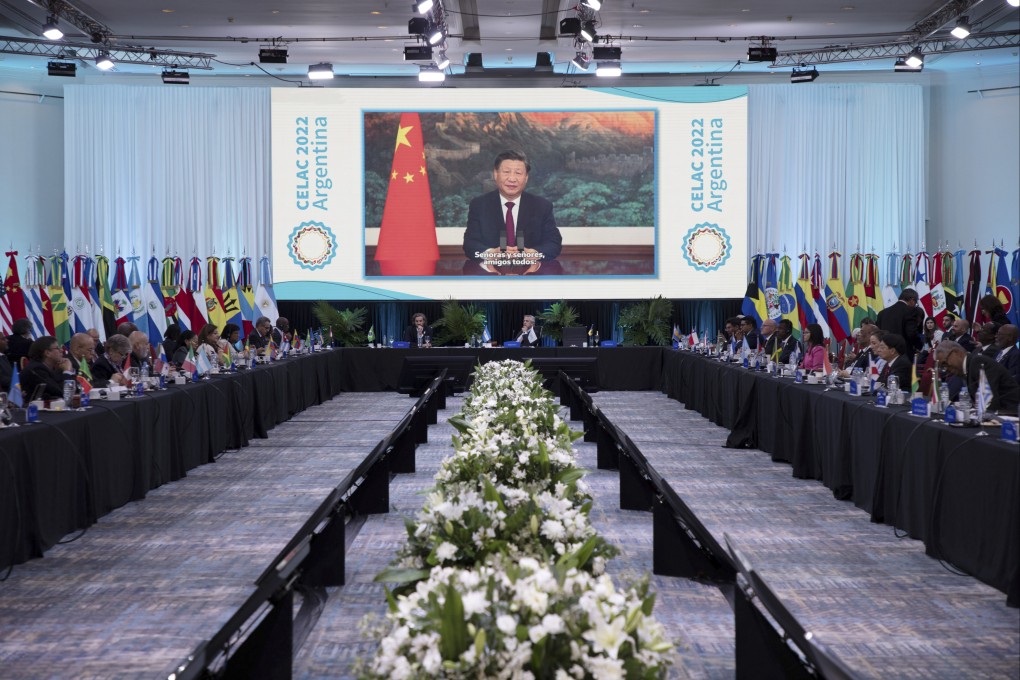Xi Jinping tells Latin American-Caribbean nations China will take ties to ‘new era’ as influence concerns West
- In video address to CELAC, Xi says world ‘is in a new period of turbulence and transformation’ and challenges need solidarity and closer cooperation
- With the current trajectory of growth in trade, China could become the region’s top trading partner as early as 2035

During the Community of Latin American and Caribbean States (CELAC) Summit on Tuesday, Xi said China had been working to take the China-LAC relationship into a “new era”.
This year, the annual summit is being held in Argentina’s capital, Buenos Aires.
Xi’s video address to the conference said China “always supports” the regional integration between Latin America and the Caribbean, and was ready to make progress with those countries.
Over the past two decades, China has drastically expanded trade, investment and aid in the region as it enhances not only economic but also political and security ties with the members.
“Latin American and Caribbean countries are important members of the developing world,” China’s president said. “We highly value our relations with CELAC, and take CELAC as our key partner in enhancing solidarity among developing countries and furthering South-South cooperation.”
Xi also noted that the world “is in a new period of turbulence and transformation” and challenges could only be overcome “through greater solidarity and closer cooperation”.

